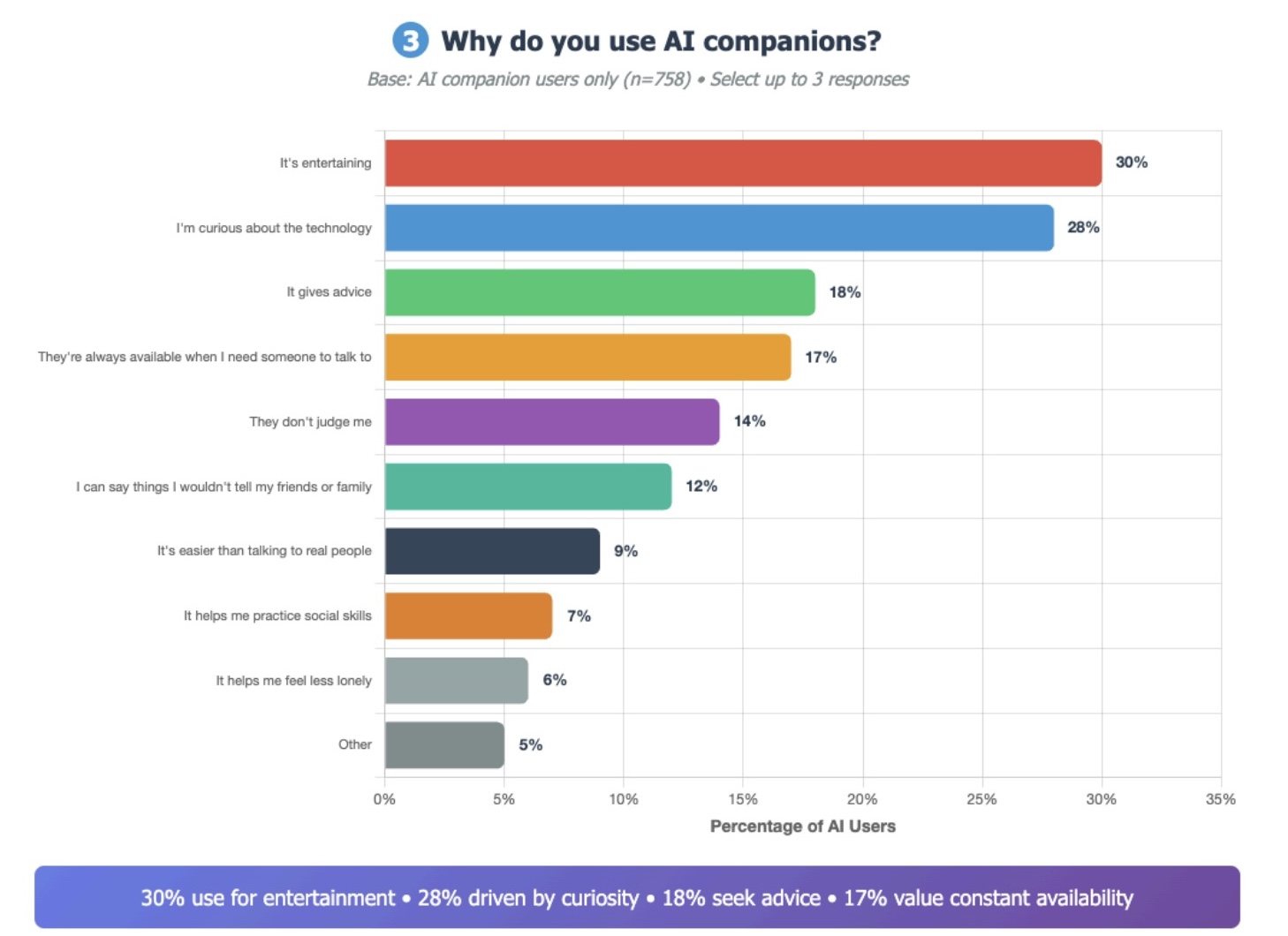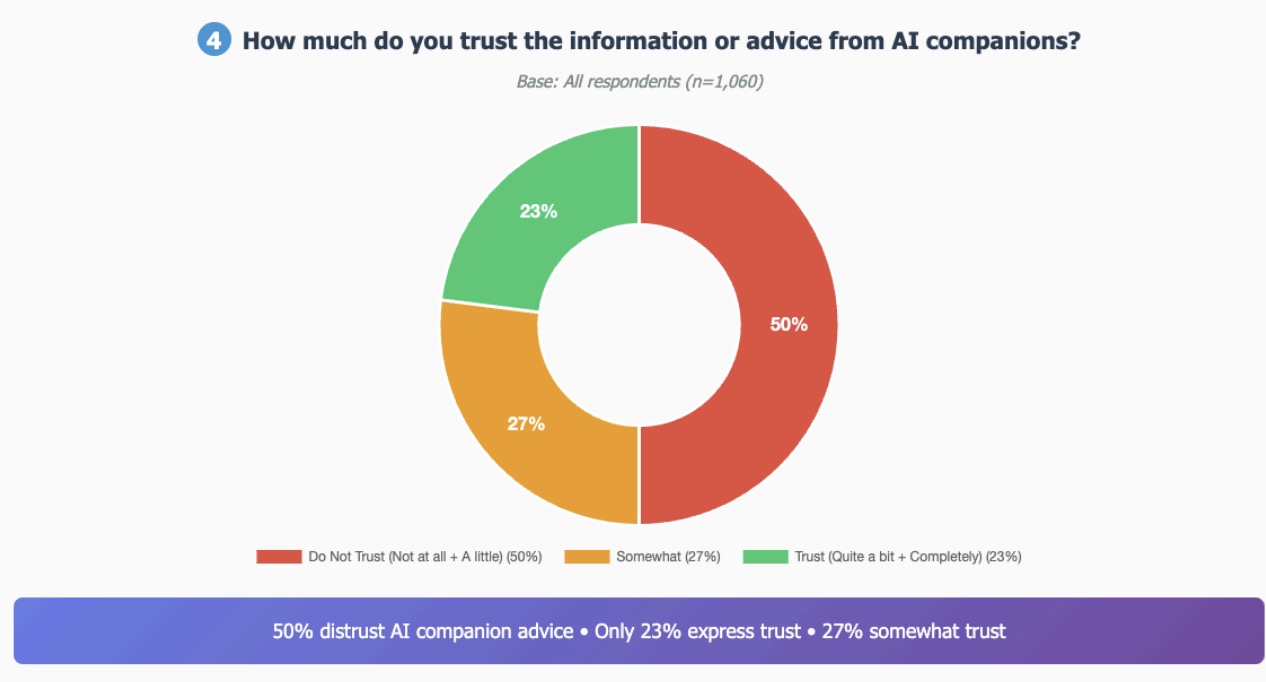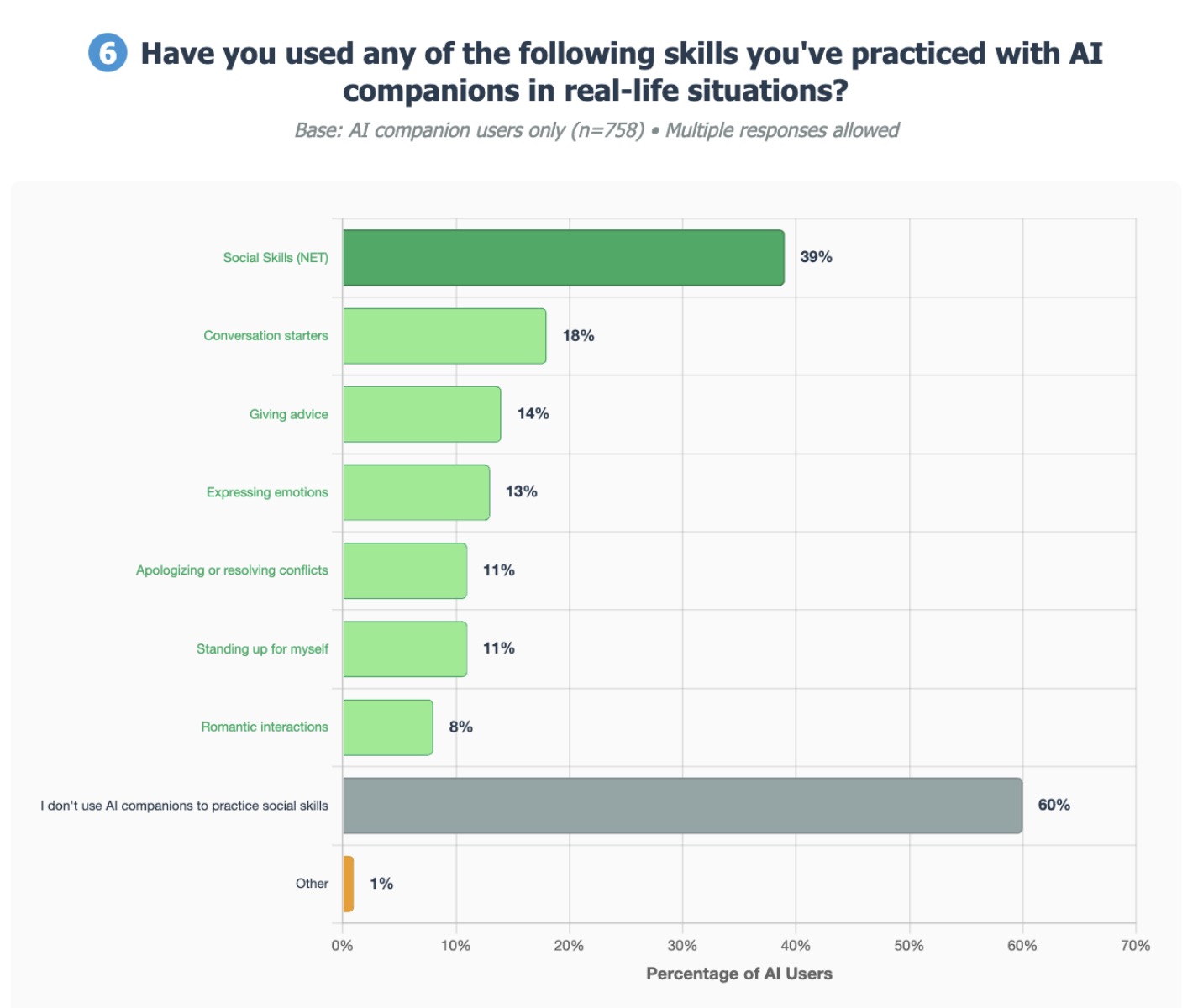As technology continues to evolve, it is reshaping the way people, especially the younger generation, interact with one another. A recent study by Common Sense Media, a US-based nonprofit organization focusing on children's and family life, reveals that a staggering 72% of American teenagers have tried AI companions at least once. These AI chatbots are designed for more personal conversations, distinguishing them from AI assistants that provide homework help, generate images, or answer questions.



The study's definition of AI companions includes digital AI personas provided by companies like Character.AI or Replika, as well as general-purpose chatbots like ChatGPT or Claude, which can be used for personal conversations if desired. The allure of chatting with AI is particularly strong among American teens aged 13 to 17, with 52% claiming to be regular users. Among these regular users, 13% engage in daily conversations with their AI companions, while 21% chat a few times a week.
Interestingly, boys (31%) are slightly more likely than girls (25%) to say they have never used an AI companion. The study, conducted by researchers from NORC at the University of Chicago, used a representative sample of 1,060 teens during April and May 2025. Concerns have been raised about the impact of AI on teens' well-being, with one firm, Character.AI, being sued over a teen's suicide in Florida and for promoting violence in Texas. There are also numerous reports describing the potential dangers of using AI for therapy.
Common Sense Media's study offers valuable insights into how young people are using AI to simulate human interactions, including virtual friendships, emotional support, therapy, and role-playing games. The analysis also examined other behaviors around teen usage of AI companions, such as the tasks they turn to them for, their reasons, and the after-effects.
Nearly half (46%) of the teens surveyed saw AI companions as tools or programs, while 33% used them for social interaction and relationships. The purposes for using AI companions varied, with entertainment (30%), curiosity about AI technology (28%), advice (18%), and their constant availability (17%) being the most common reasons.
Trust in the information provided by AI companions is relatively low, with 50% of teens expressing distrust. Older teens are less likely to trust AI advice compared to younger teens, with 20% and 27% respectively. However, one-third of the teens found conversations with AI more satisfying than those with real-life friends, while the majority (67%) felt the opposite.
Many teens use AI conversations as practice for real-life interactions, with 39% applying skills they first tried with an AI to real-world situations. Social skills were the top use case, followed by conversation starters, giving advice, and expressing emotions.
On a positive note, 80% of teens who used AI companions said they spend more time with real friends than with their AI chatbots. Only 6% claimed the reverse was true. This suggests that while AI companions may be gaining popularity among teens, they are not replacing real-life relationships just yet.